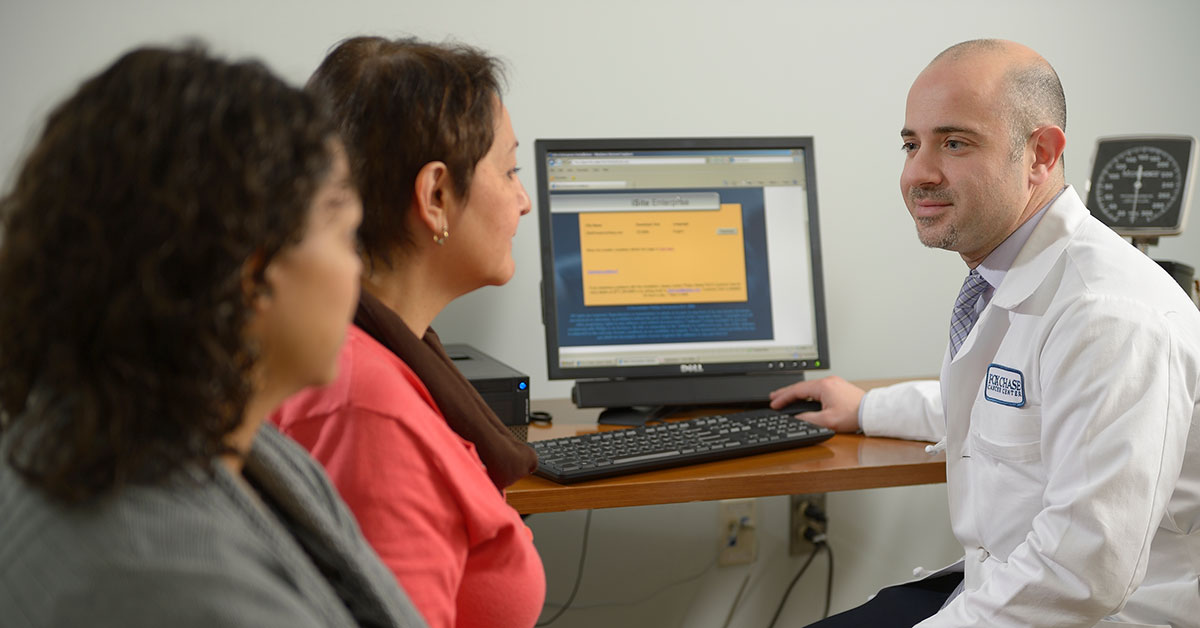
- Pedigree Review: Weekly 1.5-2 hour CME-approved multi-disciplinary conference, where cases are reviewed by the research and clinical teams. Trainees will present 2-3 patients/week.
- Genetic Counseling: Expectation of 4-5 new patient & results disclosure counseling sessions weekly in order to master the principles of non-directive genetic counseling and the principles of post-test management (e.g. medical, lifestyle).
- High Risk Clinics: 3-6 months in 3 high-risk clinics learning the principles of physical exam (e.g. breast exam), interpretation of tests, and prevention.
- TUH High-Risk Clinic: High-risk clinic focused on urban underserved population. Trainees will have the opportunity to rotate through this high-risk clinic and perform research in this setting.
- Tumor Testing Surveillance Programs: Trainees will learn to manage our Universal Mismatch Repair (MMR) Screening Program and a Tumor Profiling Surveillance Program. This involves reviewing results of MMR screening on colon and uterine tumors and tumor genomic profiling (all tumors), curating results, identifying missed cases (quality indicators), provider alerts and outcomes.
- Medical Oncology Practice: Those interested in a medical oncology clinic may practice 1 day/week, with access to targeted therapy trials/research and the Fox Chase Genomic Tumor Board.
- Clinical Cancer Genetics Research: On months one and two, trainees will meet with potential mentors including the genetics faculty and the adjunct faculty from prevention, molecular, and behavioral science. Trainees will select a mentor and develop a research project.
- Clinical Research: Epidemiology/Outcomes, Behavioral Science: Trainees may develop a research protocol. They will be encouraged to use data/biosample resources within our database, or a publicly available resource. Research findings will support abstracts, presentations, (local and national meetings), and publications. Mentor may be selected from Cancer Prevention and Control Program.
- Laboratory Research: FCCC researchers have diverse areas of expertise and offer lab-based training/mentorship, including Dr. Margie Clapper (lung cancer/colorectal cancer prevention), Dr. Erica Golemis (molecular therapeutics), Dr. Sanjeevani Arora (gene discovery), and others.
- Advanced Degree: Trainees may pursue an advanced degree (e.g. MSc, MPH) as their research training. Pursuit of this degree is contingent upon acceptance into an accredited program.